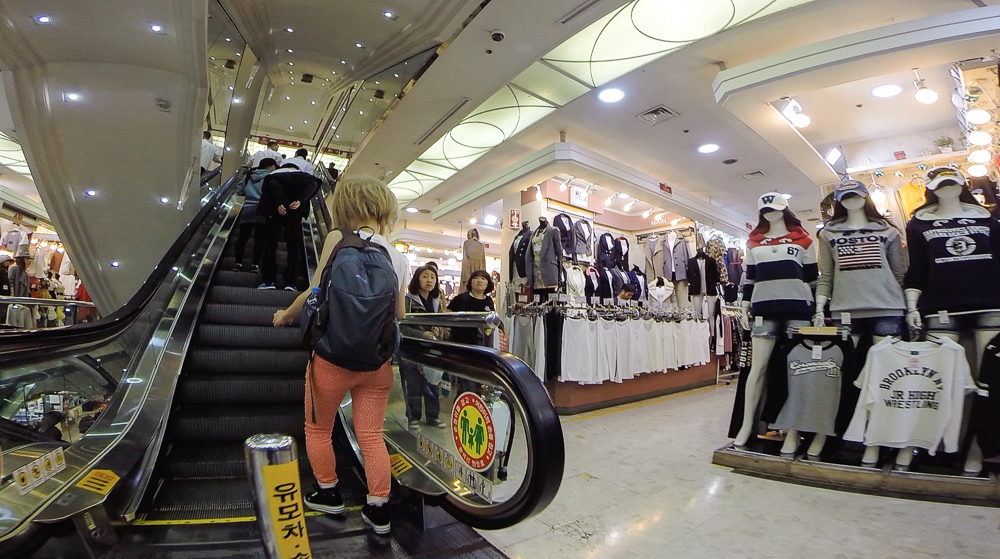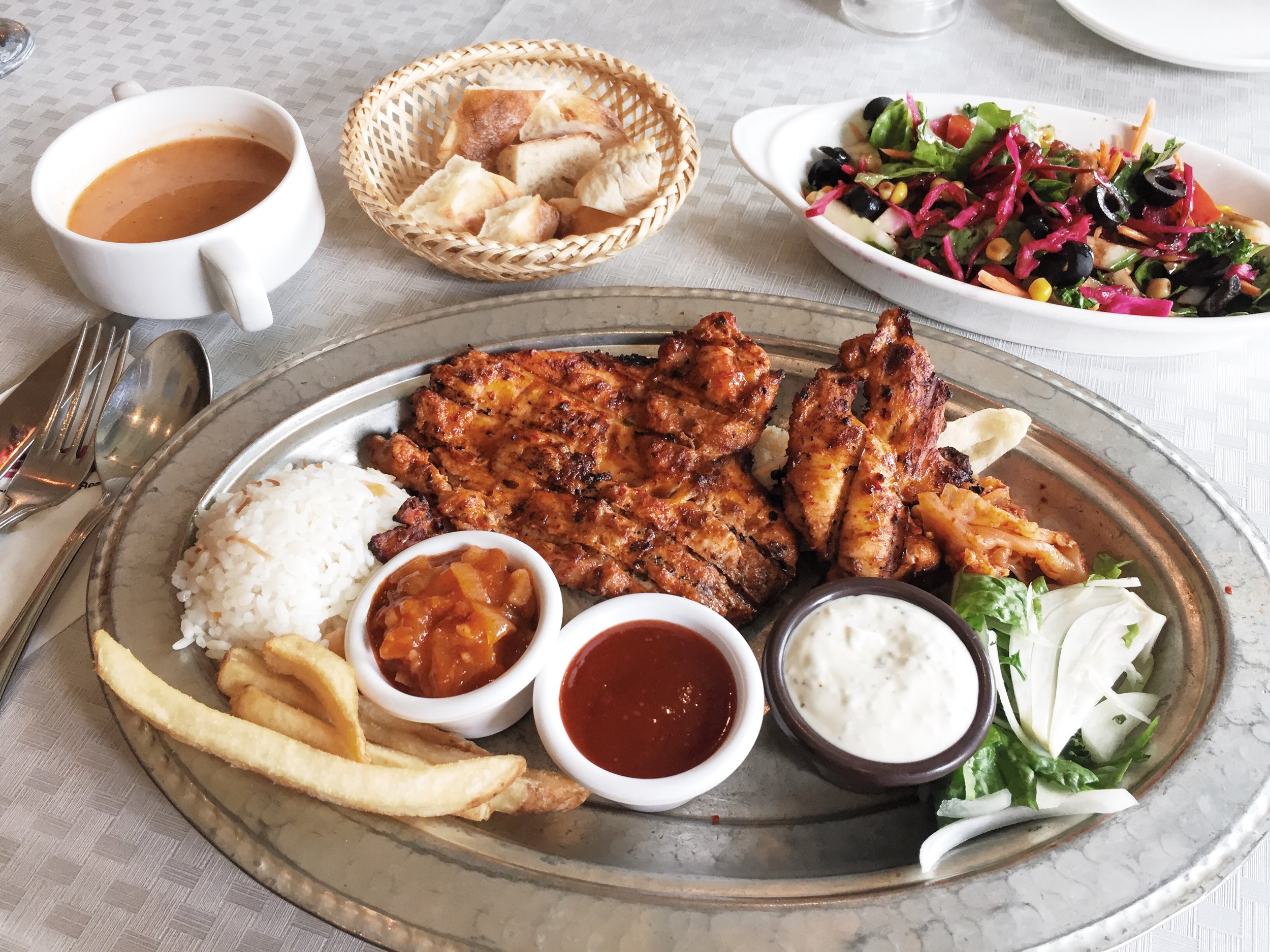주세요.
Juseyo.
Please give it to me.
메뉴 주세요.
Mehnyu juseyo.
Please give me/us the menu.
김치찌개 주세요.
Kimchi jjigae juseyo.
Please give me/us kimchi stew.
뭍 주세요.
Mool juseyo.
Please give me/us water.
계산서 주세요.
Gyesansuh juseyo.
Please give me/us the bill.
이거 주세요.
Eguh juseyo.
Please give me/us this.
반찬 더 주세요.
Banchan duh juseyo.
Please give me/us more side dishes.
김치 더 주세요.
Kimchi duh juseyo.
Please give me/us more kimchi.
안맵게 해주세요.
Ahnmepgae haejuseyo.
Please don’t make it spicy.
짜지 않게 해주세요.
Jjaji ahngae haejuseyo.
Please don’t make it salty.
뭐가 맛있어요?
Mwoga mashissuhyo?
What’s delicious?
삼겹살 일인분 주세요.
Samgyupsal eelinboon juseyo.
Please give me/us one serving of pork belly.
Or maybe you want two servings.
삼겹살 이인분 주세요.
Samgyupsal einboon juseyo.
Please give me/us two servings of pork belly.
What if you want three servings?
삼겹살 삼인분 주세요.
Samgyupsal saminboon juseyo.
Please give me/us three servings of pork belly.
See a pattern yet? To change the number of servings, you pair a Sino-Korean number with “INBOON.”
One serving: 일인분
Two servings: 이인분
Three servings: 삼인분
Four servings: 사인분
Five servings: 오인분
Six servings: 육인분
You can also replace the noun in front of INBOON to order other meats.
생갈비 일인분 주세요.
Saenggalbi eelinboon juseyo.
Please give me/us one serving of unmarinated short ribs.
차돌박이 일인분 주세요.
Chadolbagi eelinboon juseyo.
Please give me/us three servings of beef brisket.
닭갈비 일인분 주세요.
Dakgalbi eelinboon juseyo.
Please give me/us one serving of chicken “ribs.”
맛있어요.
Masshisuhyo.
It's delicious.
Separately the characters are pronounced as MAT-ISS-UH-YO. Together it’s MASSHISUHYO.
Need to make some room down there?
화장실 어디 있어요?
Hwajangshil uhdi issuhyo?
Where’s the restroom?
계산해 주세요.
Gyesanhae juseyo.
Check, please.
Traditionally Koreans fight over the bill. One person tries to pay for everyone. If you want to be Korean, then you’d say:
제가 낼게요.
Jaega nelgaeyo.
It’s on me. (formal)
If you’d like to go Dutch, then ask:
계산서 나누어 줄 수 있어요?
Gyesansuh nanoouh julsu issuhyo?
Can you split the bill?
Some businesses only accept cash, so remember to carry the greens with you. When leaving, formally greet the worker goodbye:
안녕히 계세요. (formal)
Annyeonghee gyesaeyo.
Goodbye.
*Use if you’re the one leaving and receiver is staying.



























